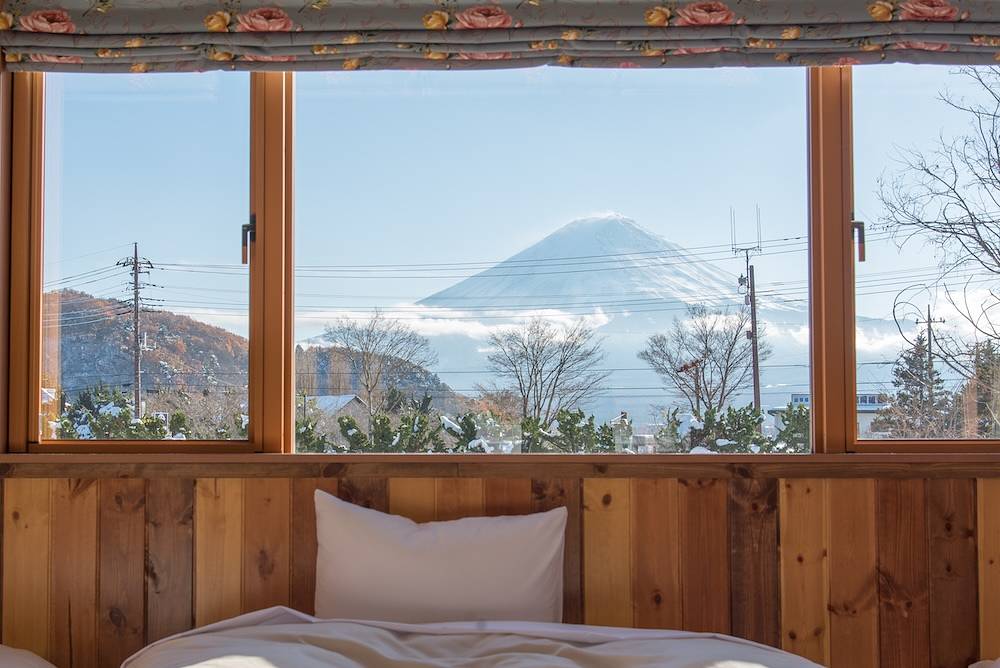Affordable stays, social vibes
Hostels in Japan are a popular choice for budget-conscious travelers who want a central location, basic amenities, and opportunities to meet others. Found in most major cities and tourist hubs, they offer dormitory-style and private rooms, often with shared kitchens and common spaces. Many hostels are modern, clean, and geared towards international visitors, with safety measures such as lockers and female-only dorms. For travelers looking for an affordable base with a social atmosphere, hostels in Japan are a convenient option.

Hostels in Japan: the essentials
Key Details |
Information |
What to expect |
|
Typical price range |
|
Bathroom |
|
Amenities |
|
Check-in/out |
|
Payments |
|
Language support |
|
Best for |
|
Where common |
|
Booking window |
|
Cancellation |
|
What to Expect from a Hostel
Japanese hostels are known for cleanliness and efficiency. Dormitories may have bunk beds with curtains for privacy, while private rooms resemble budget hotel stays. Shared bathrooms are standard, but facilities are well-maintained and often gender-separated. The atmosphere is social but respectful — many hostels encourage interaction in lounges or through organized events. Kitchens are typically self-use with clear rules about labeling food and cleaning up.
Who is a Hostel For?
Hostels are well-suited to backpackers, students, and solo travelers who enjoy meeting new people. Female-only dorms are popular among women seeking extra comfort. Couples and groups can opt for private rooms. Families with children may prefer hotels for more privacy.

What Are People Saying About Hostels in Japan?
“Japanese hostels are the best I’ve ever stayed in. Spacious and private beds, lots of amenities including toiletries, hair tools, iron.” Reddit
"It was one of the best hostel experiences I had in Japan where the quality of most of the is already very high." Bizarre Journeys
“Hostels in Japan are clean, friendly, and very common.” Medium
Pro Tips
Reserve your stay early if you plan to travel during peak seasons.
Bring a padlock for lockers and quick-dry towels for convenience.
Many hostels have limited storage, so use coin lockers or luggage delivery services.
Respect dormitory quiet times, which are often from 10:00 pm to 7:00 am.
Carry small amounts of cash for laundry machines or vending machines.
Some hostels have steep stairs and no lifts, so check accessibility in advance.

What to Wear at a Hostel / Etiquette
Casual wear is fine, but bring indoor slippers for shared spaces. Pyjamas are not provided, so pack sleepwear. Always clean up after using the kitchen. Respect shared space etiquette: keep belongings compact and avoid late-night noise.
Where to Find Hostels
Tokyo:
Shinjuku/Shibuya: These districts are known for nightlife and fast transport, making them convenient for travelers who want a lively base.
Asakusa: With temples and traditional streets, this area offers a cultural setting for sightseeing.
Ueno: This district provides easy access to museums, parks, and historic attractions.
Kyoto:
Gion: Famous for traditional teahouses and geisha culture, this area offers an atmospheric stay near temples.
Higashiyama: A historic district with scenic streets and temples, ideal for travelers interested in culture and walking.
Kyoto Station: This hub is practical for day-trippers using regional trains and provides modern accommodation options.
Osaka:
Umeda: This central hub offers business centers, shopping, and dining in a bustling urban setting.
Namba: A lively district that combines nightlife, entertainment, and food culture.
Hiroshima:
Peace Park area: Staying here offers proximity to the Peace Memorial and museums, as well as easy tram access.
Miyajima ferry access: Hotels near the ferry terminal provide convenient connections for visiting Miyajima Island.
Sapporo:
Susukino: This district is known for nightlife and dining, making it a lively area to stay.
Odori Park: Staying near this central park offers easy access to seasonal festivals and transport links.
Trade-offs:
Near stations: Hotels close to major transport hubs give easy access but can be busier and noisier.
-
A short walk away: Staying a few blocks from stations often means quieter streets and less foot traffic.
Getting There and Around
Most hostels are located near JR and subway stations, making them easy to access. For travelers planning multi-city trips, the JR Pass offers cost savings on train journeys.
Staying connected with pocket Wi-Fi helps navigate routes and book tickets on the go. Meet & Greet is also available to simplify arrivals.

Plan and Book
Want a comfortable hotel instead? See JapanDen’s hotel options in your area.
More to Know
Hostels in Japan became popular in the 1970s with the rise of international backpacking source. Today, they range from traditional “youth hostels” to trendy, design-focused properties. Age restrictions are rare, though some hostels target younger travellers. Many properties encourage cultural exchange, offering workshops or local tours. Security is strong, with lockers, front-desk storage, and late-night entry systems.
FAQs About Hostels in Japan
Are there hostels in Japan?
Yes, hostels are common in major cities and tourist destinations across Japan.
How much are hostels in Japan?
Dorm beds cost around ¥2,500–¥4,500 per night; private rooms range from ¥6,000–¥10,000.
Are hostels in Japan safe?
Yes. Most provide lockers, staffed front desks, and curfews or entry codes at night.
Do hostels in Japan have private rooms?
Yes, many offer single or double private rooms.
Do Japanese hostels have curfews?
Some do, especially older hostels, but many newer ones don’t.
